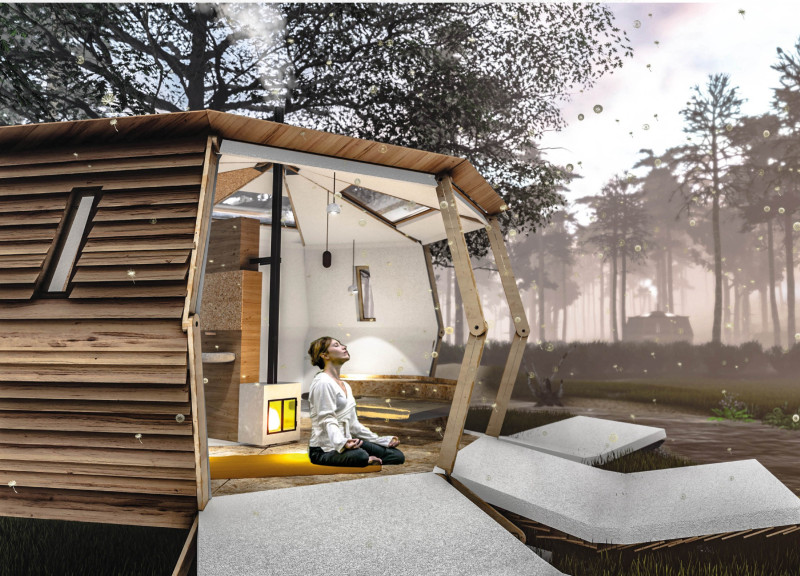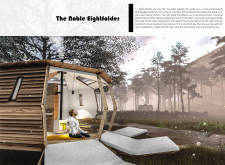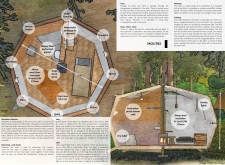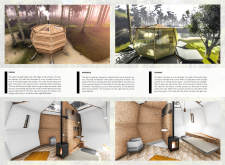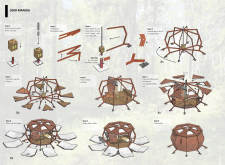5 key facts about this project
The cabin serves as a quiet retreat located within a natural landscape. Its main purpose is to provide a space for meditation, allowing individuals to escape the noise of daily life and focus inward. The design concept emphasizes a close relationship with the environment, reflected in the cabin's octagonal shape, which promotes both balance and tranquility.
Design Concept
The cabin’s octagonal form is important for both strength and symbolism, aligning with the idea of the noble eightfold path. Inside, spaces are clearly defined, including areas for sleeping, writing, and cooking. Each of these functions contributes to the overall goal of creating a peaceful environment for meditation, ensuring that every element within the cabin supports this focus.
Sustainability Features
Sustainability is a key aspect of the design, particularly in how waste is managed. The cabin includes a dry toilet system that separates urine and stool, making use of a helophyte filter to clean the waste. This approach highlights an ecological commitment and promotes careful resource use by allowing compost to return to the soil, supporting a cycle of life.
Water and Heating Systems
Water collection is carefully planned through a system that captures rain and channels it from the roof to storage tanks for both cold and hot water. This solution meets practical needs while considering environmental impacts. Heating is provided by a soapstone stove that relies on wood or pellets sourced nearby. This method efficiently maintains warmth in the cabin while aligning with sustainable practices.
Interior Materials
Materials chosen for the cabin play a significant role in shaping its character. Wood forms the main structure, providing strength and a connection to the natural setting. The interior uses wool, recycled fabric, and cork to create a warm, inviting atmosphere.
The design encourages a connection with the outdoors, featuring walls that can be opened or closed to respond to changes in the environment. This flexibility provides an interaction with nature, allowing the cabin to merge with the landscape while meeting the needs of its occupants.


